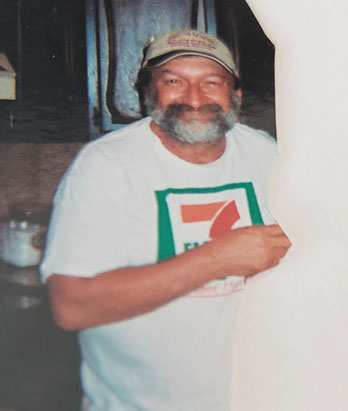Patricia N. Leech


Patricia N. Leech, 85, of Stanley, died on July 7 at the Country Terrace under the care of Heartland Hospice. She was born on July 27, 1939 at her families’ home near Jump River to the late Roland and Mary (James) Johnston. Pat grew up on the family farm and went to area schools, including Hannibal but graduating from Gilman High in 1957. Pat married Earl Leech on July 20, 1957 at the Hannibal Presbyterian Church. Pat lived in the town of Pershing near Gilman most of her life until a couple years ago when she moved to the Sunset Homes in Stanley. Pat worked for Thorp Finance for several years, as well as being a homemaker and helping on the small dairy farm. Later she worked for GO Sportswear in Thorp for 20 years until her retirement.
She enjoyed spending time with her family, especially her grandchildren. Pat also enjoyed gardening, canning, knitting, crocheting and sewing many dresses. She will be sadly missed by her family but will forever watch over them. She had a deep love for her husband, Earl.
She is survived by her children, Jim (Lynn) Leech of Stanley, and Michael Leech of Thorp; her grandchildren, Misty, Cody, Levi, Kayla, Janell, Amanda, Samantha and Megan; and many greatgrandchildren.
Pat was preceded in death by her parents; her husband, Earl; her daughter, April Rinehart; and her siblings, Keith, Phillip and Katherine Johnston.
A funeral service will be held at 11 a.m. on Friday, July 11, 2025 at New Hope Presbyterian Church-Hannibal with Pastor Beverly Thompson officiating. Burial will follow in the Hannibal Cemetery. Visitation will be from 10 a.m. until time of service Friday at the church. Plombon Funeral Service assisted the family.
A special thank you to the Heartland Hospice Director and all the staff at Country Terrace for their wonderful and caring compassion. It was deeply appreciated.






